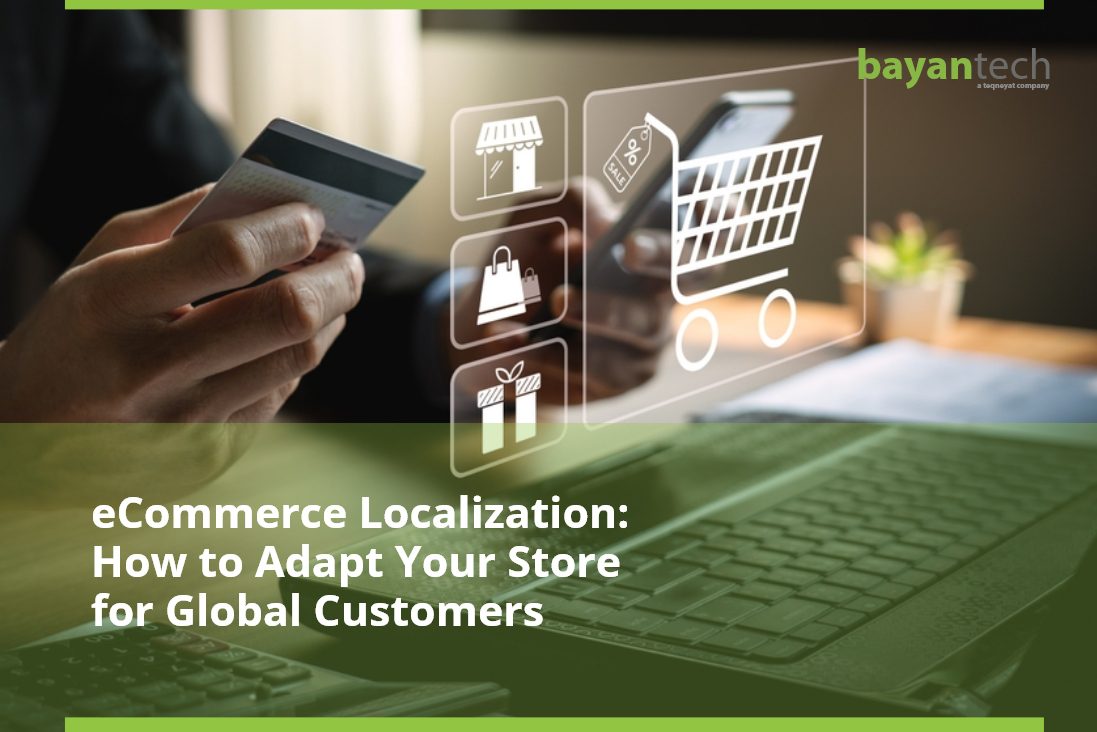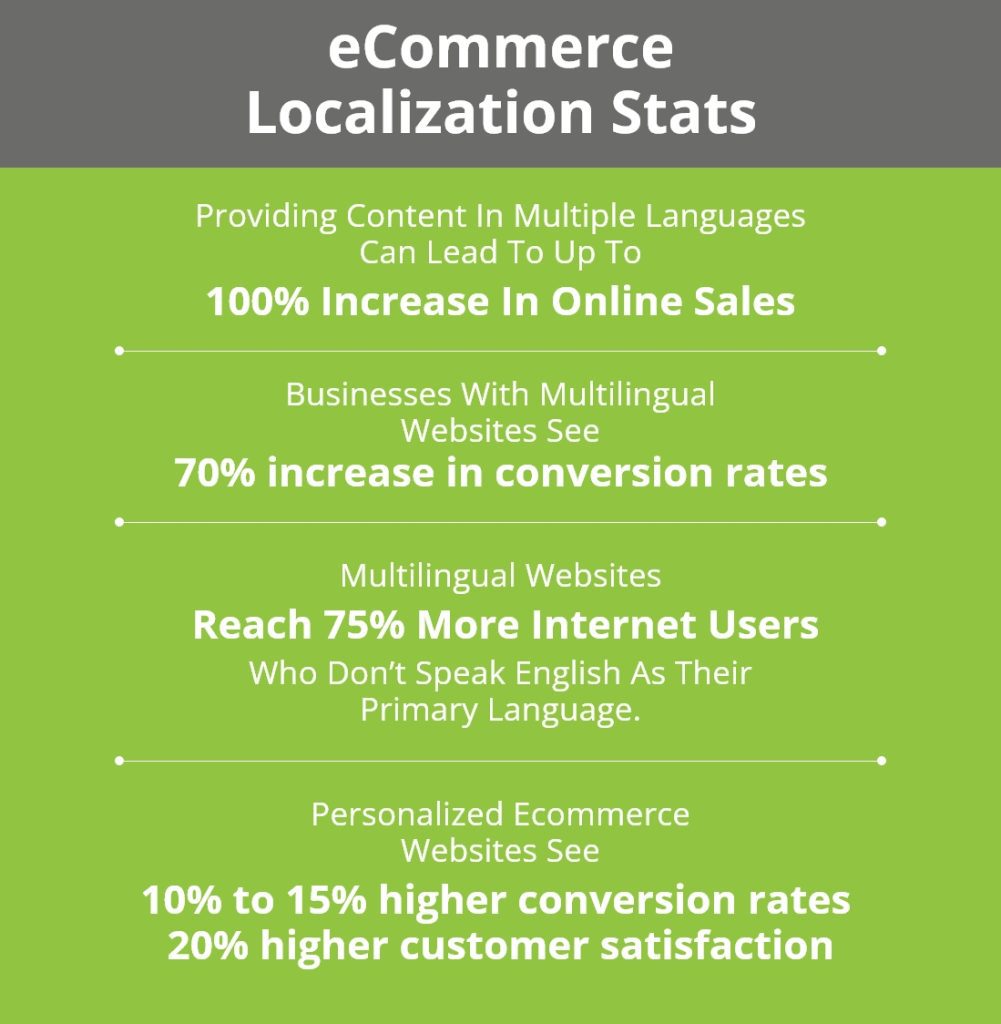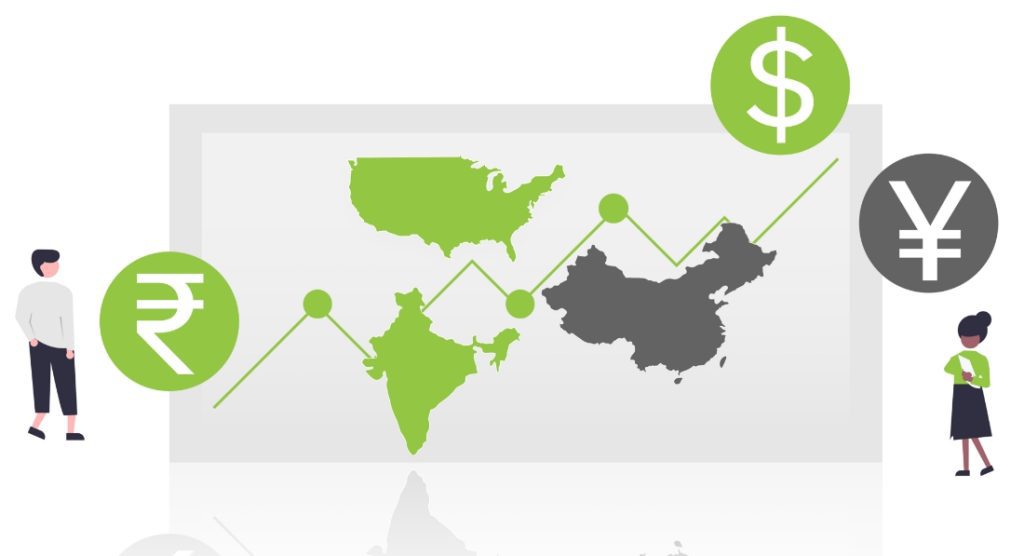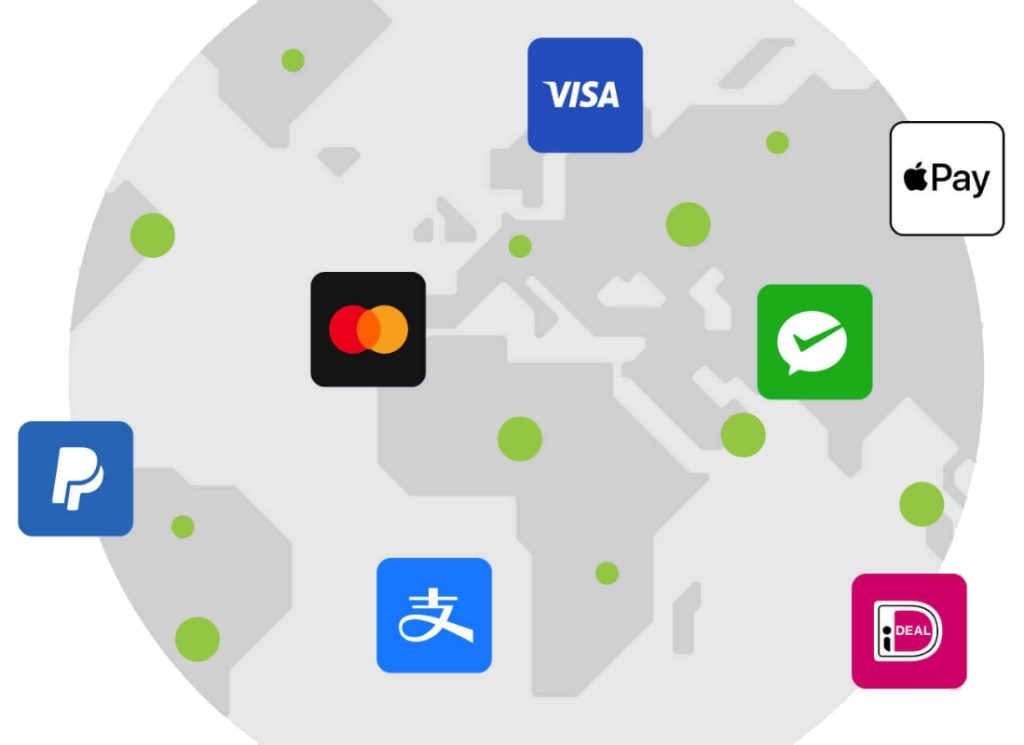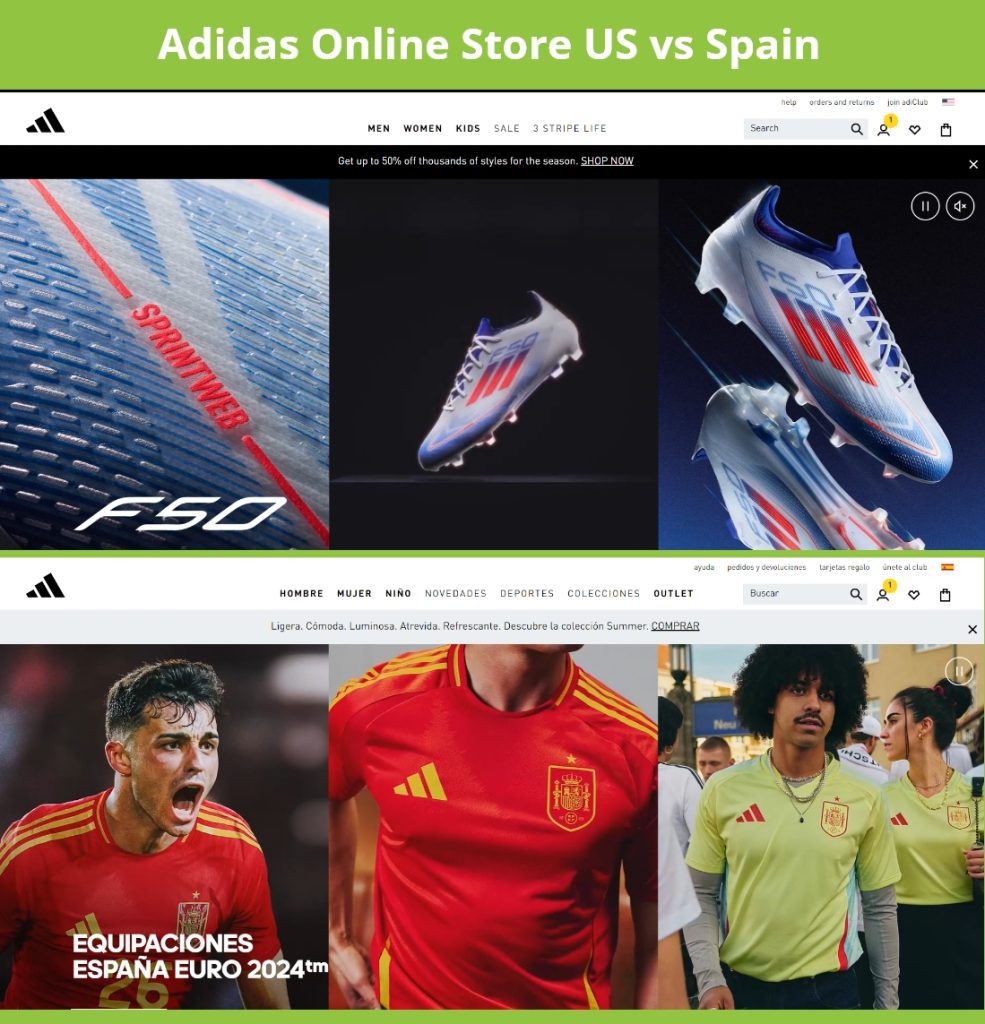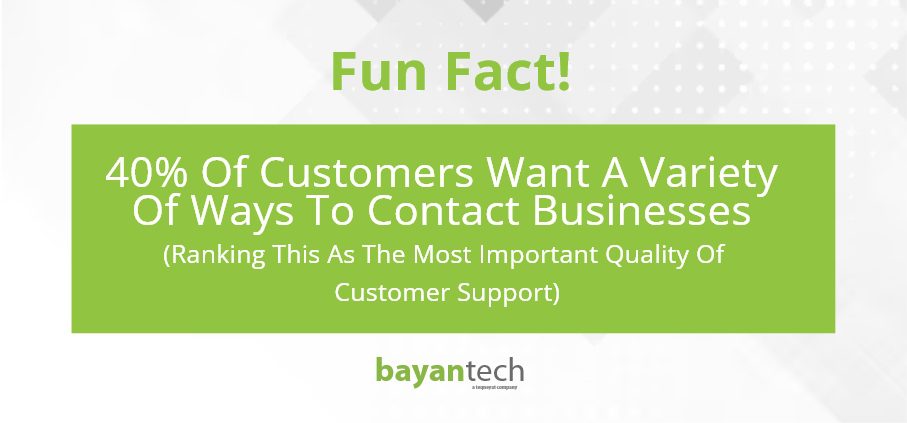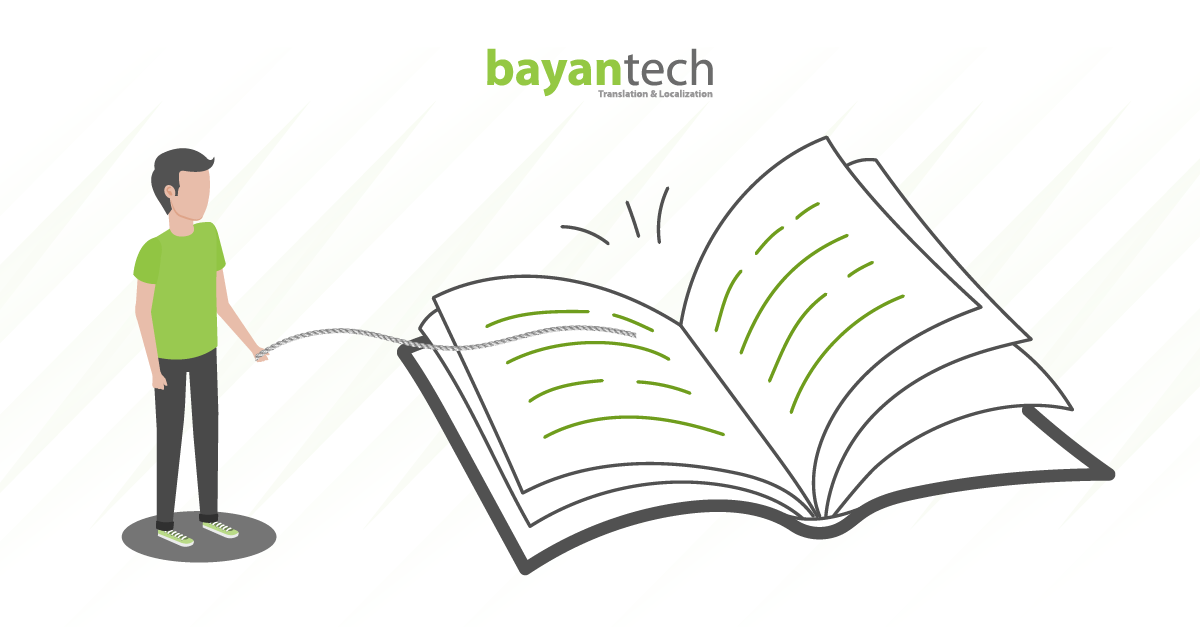Imagine spending time and money building your eCommerce business and crafting compelling campaigns only to lose their impact due to language barriers. If you’re planning to expand beyond your home country, eCommerce localization is your best strategy for success.
And the data speaks for itself…
Stores that only offer one language have a 1.6% conversion rate and a whopping 73% of customers abandoning their shopping carts. That’s a lot of lost sales! On the flip side, stores that support 5 or more languages see their conversion rates jump up to 5.6% and reduce cart abandonment to just 65%.
With a solid eCommerce localization strategy, you can create a tailored customer experience that engages and converts across local markets.
In this blog post, we’ll reveal the key elements and best practices of eCommerce localization. Keep reading to learn how to prepare for a successful localization process and maximize your profits!
What is eCommerce Localization?
eCommerce localization is adapting your online store to fit the language and cultural requirements of a specific target market. The goal is to create an intuitive and tailored shopping experience for international customers, from the very first interaction to checkout.
However, localization is not a simple process; it takes a comprehensive, holistic approach to customize the entire buying experience, from adapting content to customizing designs. What’s more, it requires regular testing and optimizing to build a truly impactful buying journey and uplift conversions.
The Power of Speaking Your Customer’s Language
Today, the competition in the global marketplace is stronger than ever before. So, how can you set yourself apart from your rivals and maximize your brand’s reach?
The answer is in eCommerce localization. Localizing your eCommerce store helps you overcome linguistic barriers and cultural gaps, empowering you to attract and retain local shoppers.
When you speak your customer’s language (literally and culturally), you show your commitment to serving them and meeting their needs by offering a personalized experience. This is what localization exactly does! It enables you to build an experience that looks and feels tailor-made for your target market.
Plus, eCommerce localization allows you to connect with local audiences on a deeper level by capturing the most intricate and subtle cultural quirks that shape their shopping preferences and habits.
Now, we’ll leave you with the following stats on international consumer behavior and the benefits of eCommerce localization.
5 Key Elements & Best Practices of eCommerce Localization
Let’s break down the 7 essential elements you shouldn’t miss for a successful eCommerce localization process.
1. Content Adaptation for Cultural Considerations
The first thing on our list is the cultural relevance of your content. Your store contains a variety of marketing materials, such as blogs, landing pages, product descriptions, graphics, and videos. To effectively connect with your culturally diverse customers, you must adapt everything to resonate with them.
Here, we’re not only talking about merely translating content into the target language. We mean tailoring every piece to the cultural context of local customers. How? By understanding and incorporating your audience’s traditions, cultural norms, and preferences into your content strategy.
This tactic will help you craft marketing messages that strike a chord with your local customers and emphasize how your product is uniquely positioned to address their concerns. Also, it will demonstrate that your brand speaks their language, both literally and culturally.
2. Pricing & Payment Methods
When developing your eCommerce localization strategy, you must also consider pricing. So, you need to study your target market beforehand to effectively localize two elements.
Prices
Display prices in the local currency, while considering the market’s pricing models and your competitors’ pricing strategies. Failing to show prices in the local currency can discourage customers from completing their purchases, as they may be unsure about the exact amount they’ll be paying.
Payment Options
Additionally, you need to tailor the payment methods to align with your target audience’s preferences. For instance, while PayPal and Apple Pay are widely used in the United States, research shows that 92% of consumers in China primarily use Alipay and WeChat Pay.
When you use local currency and the payment methods your target customers are most comfortable with, you provide a frictionless buying and checkout experience.
3. International SEO
Google estimates that 39% of online shoppers are influenced by relevant search results. This means your store’s visibility is crucial for attracting potential customers who are actively looking for the products you offer.
As such, you must optimize your site for local searches by following the multilingual SEO best practices. Here are 3 essential SEO tactics to improve your local ranking:
- Keyword Optimization: First, start by conducting keyword research to identify the most locally relevant, high-traffic keywords. Then, incorporate these keywords naturally into your localized content. Also, don’t forget to optimize meta tags and descriptions.
- Hrefland Tags: Next, use hreflang tags to specify the language and geographical targeting of your localized store. These tags will help search engines understand which version of your site is most appropriate for each audience.
For example, if you have two Spanish versions of your shop, one for Spain and one for Mexico, you should use hreflang tags as follows:
Mexico: “https://example.com/es-MX/”
Spain: “https://example.com/es-ES/”
Search engines will then use this information to show the most relevant version of your site to customers based on their language and location.
- ccTLDs: Use country code top level domains (ccTLDs). These are two-letter domain extensions that indicate the country you’re targeting. For example, (.de) for Germany, (.jp) for Japan, and (.sa) for Saudi Arabia. Adding these extensions will improve your site’s visibility in country-specific search results.
4. Design and User Experience
A critical aspect of eCommerce localization is adapting the user experience to suit the target audience. Since culture influences how users interact and behave online, a successful approach in one market might be ineffective in another.
Therefore, paying attention to each element in the user experience is essential to building a high-impact shopping experience. Here’s how you create a culturally appropriate UX:
- UI design: Optimize the layout to accommodate the linguistic requirements of the target language, such as right-to-left writing systems and text length variations. Ensure that all UI elements look sleek and that your translated content fits properly within the layout. Additionally, align navigation style, icon placement, and symbols with local norms and cultural preferences.
- Visual elements: You might need to customize your color palette. This is because some colors are less appealing or may carry negative connotations in some cultures. So, make sure that the color scheme is inviting for local users.Furthermore, adapt graphics, images, and videos to match your audience’s expectations. Make sure all visual elements are appropriate and adhere to local traditions so you don’t push people away from your store.
- Date/time formats: Does your target audience use a 12-hour or 24-hour format? Localize time formats according to local conventions to provide a frustration-free experience. And don’t forget about date formats as well. While Month/Day/Year is the norm in North America, other regions prefer Day/Month/Year or Year/Month/Day formats.
- Measurement units: Adapt all measurement units to meet local standards and prevent confusing customers. For example, while US customers typically use Fahrenheit, feet, and miles, other regions prefer Celsius, liters, and kilometers.
5. Multilingual Customer Support
Providing customer service in your audience’s native language is a crucial part of your eCommerce localization strategy. Customers will have questions and requests and they expect to receive assistance in a language they understand. Failing to provide this level of support can lead to a sense of frustration, ultimately resulting in the loss of valuable customers.
To ensure a positive customer experience, it is essential to localize all help and support materials. This includes FAQs, help center articles, email communications, and even over-the-phone support. When you provide this support, customers will feel valued and respected, helping you build brand trust and loyalty.
bayantech: eCommerce Localization Services You Can Trust
bayantech is a leading eCommerce translation services provider based in the heart of the MENA region. With over two decades of experience, bayantech has proudly guided numerous regional and global businesses to international success with high-quality language services.
We cover all major Middle Eastern, African, European, and Asian languages. bayantech has built a widespread network of professional translators and native linguists in more than 185 languages. Our services conform with the ISO 1700 and ISO 9001 quality management standards.
Get in touch today and find out how we can help your business thrive in the global marketplace!
8 Steps Every Medical Interpreter Takes
Looking for a medical interpreter? Discover the career path of medical interpreters and qualifications they need to acquire to take on interpreting jobs.

